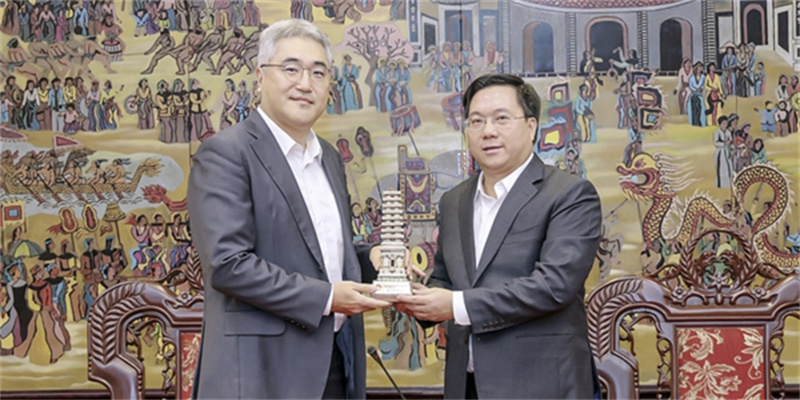SKC(KRX: 011790) has made significant progress in stabilizing the production process for its highly anticipated semiconductor glass substrates, often referred to as the "dream substrate." The company expects to begin mass production following certification from AMD in the first half of 2025, with full-scale revenue expected by 2026.
Under the leadership of CEO Park Won-cheol, this venture is seen as a potential growth driver for SKC, which has faced recent financial struggles.
According to industry sources, SKC’s subsidiary Absolics has largely stabilized the glass substrate production process, overcoming challenges like breakage and adhesion issues. Absolics recently conducted a tour of its Atlanta plant, where the production line is currently operating on a small-volume manufacturing (SVM) basis. The plant will transition to high-volume manufacturing (HVM) after AMD certification in 2025.
SKC is eyeing AMD as its first major customer for the glass substrates, thanks to its partnership with Chiplet, a packaging company founded by former AMD packaging expert Brian Black. SKC acquired a 12% stake in Chiplet last year, positioning itself to supply AMD with cutting-edge substrates.

According to the government of Vĩnh Phúc Province in Vietnam, Han Sung-won, head of SK Group's Hanoi representative office, met with Tran Duy Dong, Chairman of the Provincial People's Committee, on the 9th (local time) to request support for the expansion of ISC's production facilities.
In preparation for mass production, SKC has invested KRW 520 billion to acquire a 45% stake in ISC, which is expanding its Vietnam facility to produce silicone rubber sockets for glass substrate yield testing. ISC's testing solutions will be used to ensure the substrates’ performance and consistency.

SKC has faced seven consecutive quarters of losses, but its semiconductor materials business is emerging as a key area of growth. In Q2 2024, the semiconductor materials division generated KRW 67.3 billion in revenue and KRW 15.8 billion in operating profit—the only profitable segment of the company.
Glass substrates are expected to be a key driver of future growth, offering significant improvements in high-bandwidth memory (HBM) and AI semiconductor packaging. Glass substrates can reduce packaging thickness by 25%, lower power consumption by over 30%, and increase data processing speeds by 40% compared to traditional plastic substrates.
Some industry experts believe glass substrates could even challenge TSMC's leading 2.5D packaging technology, CoWoS. Professor Lee Yong-won from Georgia Tech remarked that "glass substrates are an innovation that could rival TSMC's renowned CoWoS technology."
As the semiconductor industry continues to evolve, SKC is betting on glass substrates to play a crucial role in the future of AI and high-performance computing.
+86 191 9627 2716
+86 181 7379 0595
8:30 a.m. to 5:30 p.m., Monday to Friday
